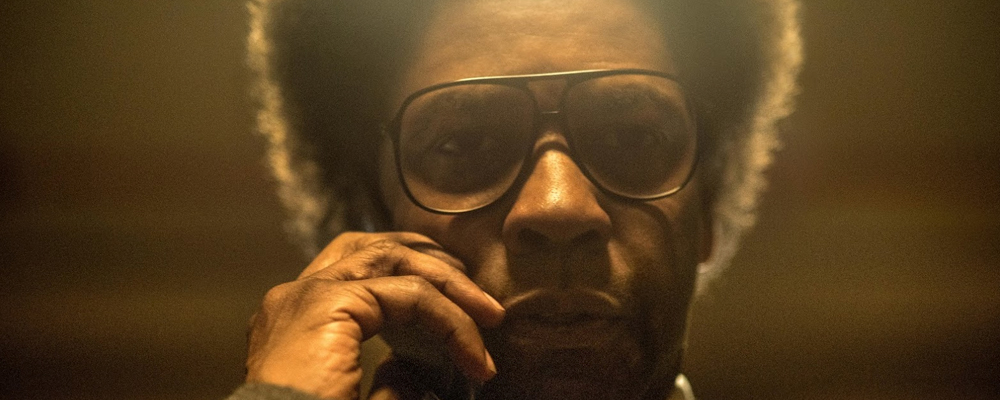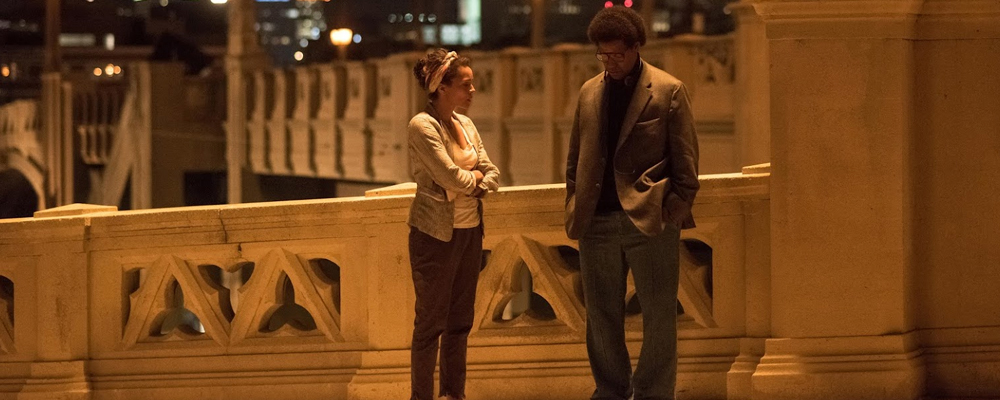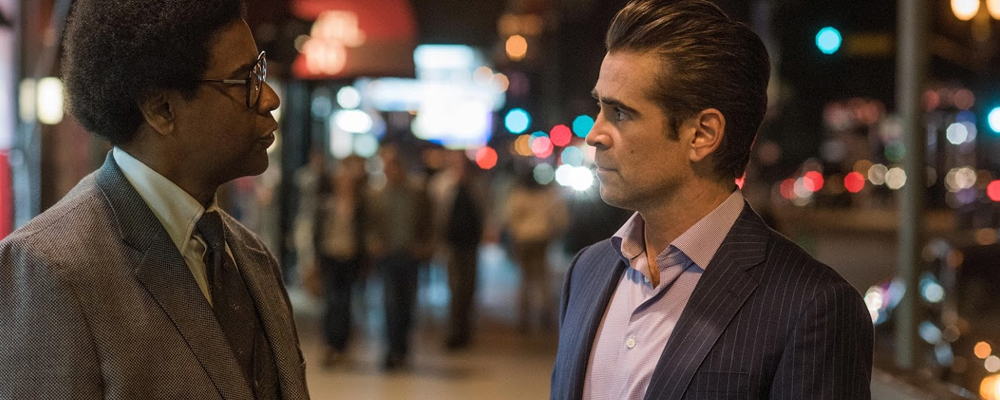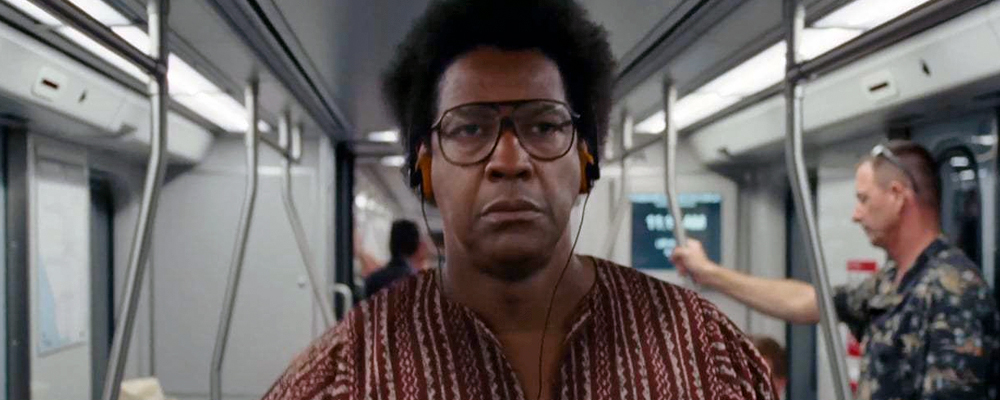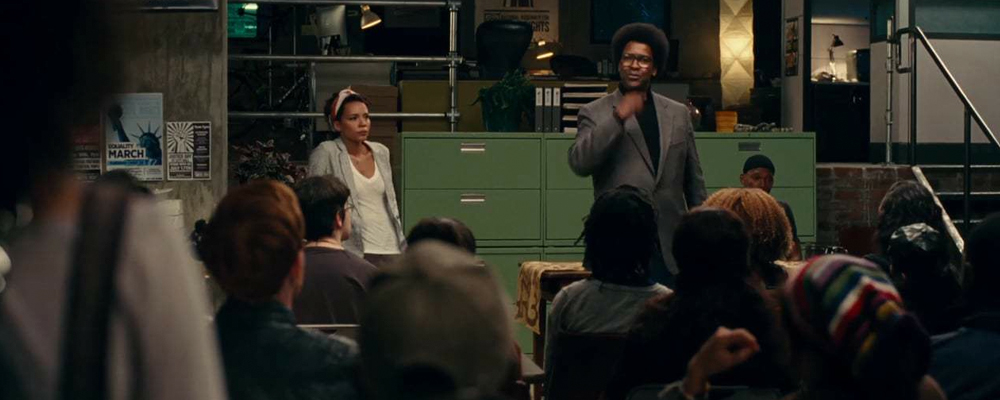‘Roman J. Israel, Esq.’ Squanders Denzel Washington’s Great Performance
Alci Rengifo
Roman J. Israel is the last gasp of the 60s in contemporary, flashy Los Angeles. His character is one long, sad and slow disappearing act, much like the entire movie. He is interesting, while this movie is not. “Roman J. Israel, Esq.” is a curiously shapeless film with a lead persona that could be endlessly fascinating if writer/director Dan Gilroy would give him an actual story to live in. Instead Roman and the entire movie quickly become a cliché, but interestingly enough they feel like unfinished clichés. Relationships begin but never develop, themes open yet never expand, and the third act becomes a recycle of every John Grisham legal thriller from the genre’s golden age in the 90s.
The film begins with the kind of pounding tempo of a courtroom thriller as Roman J. Israel (Denzel Washington) writes a legal document essentially against himself. He recommends his disbarment and judgement. We find out just why as the film rewinds to three weeks before the opening scene. Roman is an activist lawyer for an L.A. firm who finds himself jobless after the firm’s head suffers a severe heart attack. Roman is literally a leftover from the 1970s, he still sports a fro and his suits from the era. His most modern gadget on hand is an early iPod. He speaks in an elegant lingo and still promotes causes such as social revolution and empowering the poor. But the times and city have changed. The firm is handed over to a flashy lawyer and law firm head named George Pierce (Colin Farrell). Pierce offers to hire Roman (as long as he gets a new suit), and tempts him with the lavishness of for profit legal work. At first Roman hesitates and attempts to get hired by a local non-profit run by a young activist, Maya (Carmen Ejogo). But with no chance of a salary among the politically active, Roman decides to try his luck with Pierce and maybe even let the guard down on his principles just once.
The major highlight of this film is Denzel Washington’s performance. He conjures a character that embodies all those odd figures you find walking around Los Angeles, like passengers left behind from some other era. His apartment is a vintage museum of Black Power posters with not a single computer in sight, but Roman keeps a typewriter of course. In a sense he symbolizes the last gasps of the kind of radical leftism of the 60s. In one interesting scene Roman tries to speak before a younger activist meeting. When he suggests that some of the men sitting down offer their chairs to the “sisters” still standing, he is rebuked as “sexist.” Baffled, Roman replies that he was just being “polite.” The scene speaks to what a character like Roman could be used to explore, but Gilroy only gives us this and a few other sketches that never amount to much.
The first two acts of the film feel as if we are just following Roman around meanderingly. Gilroy hints at issues like gentrification (a fancy new apartment is being built right next to Roman’s old building) and inequality, but these are just background decorations. Roman’s relationship to Maya is much ado about nothing. Their characters are set up in a way where a real bond could develop, but Gilroy just abandons it in midair. There is one dinner scene where Maya speaks in the kind of pretentious tone of a west side leftist, but we never get a sense of how these two radicals from two different eras deal with their shared passion but differing styles. Once the plot kicks into autopilot Roman commits acts we can’t really see him doing, at least in the way the plot sets him up for it, and it is hard to grasp just what Gilroy truly feels about this character. Is he a loon or an admirable freedom fighter? I suspect the latter, but if so, Gilroy wastes him on a generic plot development involving gangs and snitches. The third act gets so corny it all feels terribly calculated. The ending feels like a forced “shock” designed to move us, but it’s an old trick used in far better movies.
This is a surprisingly bland movie from Gilroy, whose debut “Nightcrawler” was an atmospheric, edgy film about an amateur video journalist prowling the nights for graphic footage to sell to the networks. In that movie there was a tight, concise plot and we felt like Gilroy knew exactly what he thought about his lead and supporting characters. Here Colin Farrell’s Pierce is reduced to being a cardboard character in a suit, with few insights. Maya speaks like a slogan, not like an individual. The rest of the characters are reduced essentially to cameos. Even the cinematography by the great Robert Elswit feels toned down and colorless.
“Roman J. Israel, Esq.” has an immensely talented cast and crew, but what it lacked was a story worthy of their talents. The main character is indeed memorable, but he is adrift in a forgettable movie.
“Roman J. Israel, Esq.” opens in select theaters Nov. 17 and nationwide on Thanksgiving.

